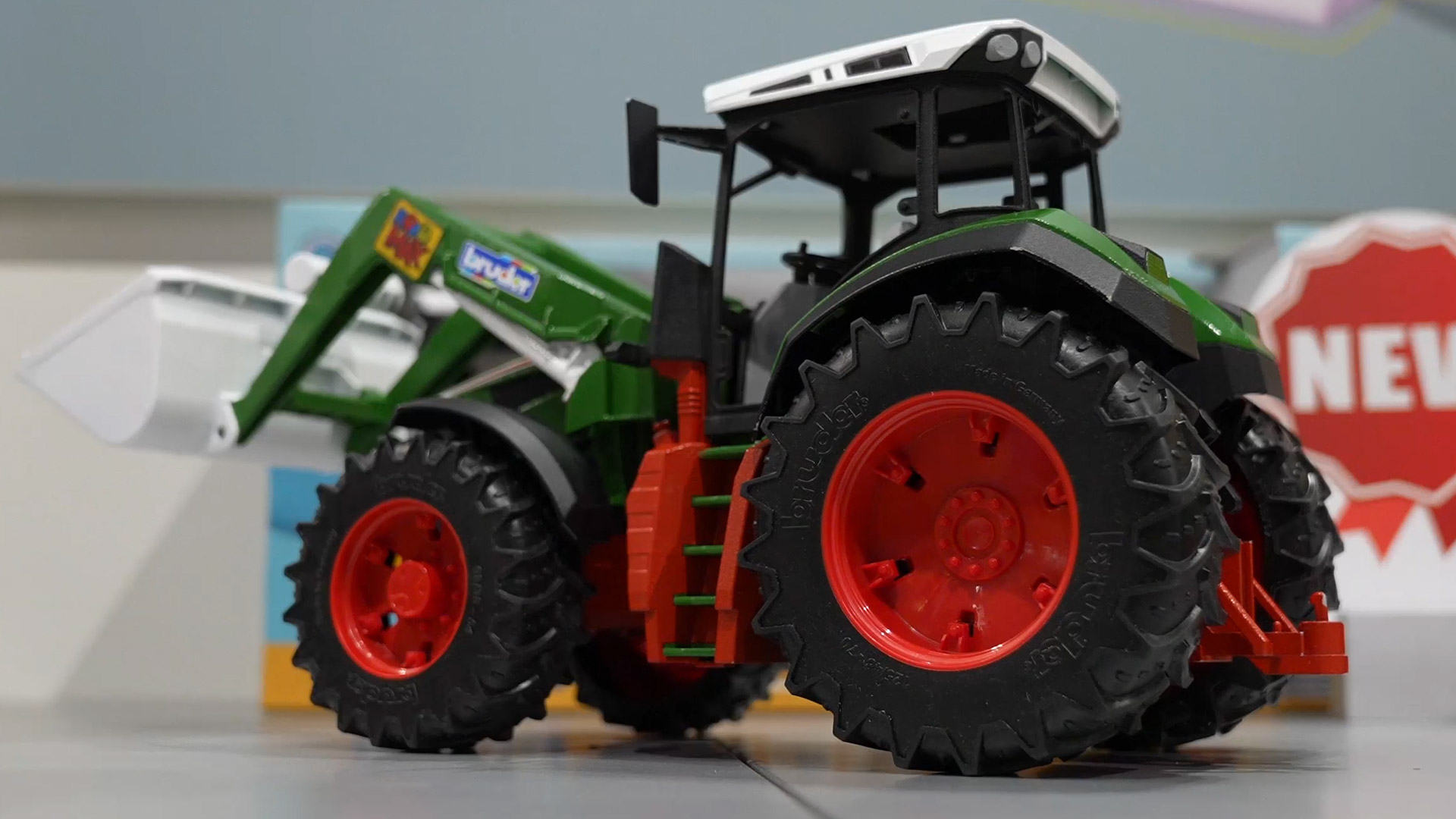AGRITECHNICA in Hanover is much more than a technology trade fair – it is the global showcase for modern agriculture and the most important meeting place for innovations in agricultural technology. Every two years, it attracts tens of thousands of trade visitors from all over the world. In the halls of the Deutsche Messe in Hanover, the industry's leading companies present their latest developments: from intelligent tractors and fully automated harvesting machines to digital farm management systems.
Organized by the DLG (German Agricultural Society), AGRITECHNICA sees itself as a platform for exchange between practice, research, business, and politics. With over 2,800 exhibitors from more than 50 countries, it is the world's largest trade fair for agricultural technology – and at the same time a place where key issues for the future of global food, sustainability, and rural development are discussed.

At the heart of AGRITECHNICA is the impressive variety of technical solutions along the entire agricultural value chain. Machines for soil preparation, sowing, plant protection, fertilization, harvesting, and transport will be on display, as well as technologies for storage, processing, and energy generation from agricultural resources. Digital systems are becoming increasingly important: sensor technology, GPS-controlled steering, drone monitoring, and cloud-based farm management are no longer visions of the future, but everyday practice. Anyone interested in other agricultural and technology trade fairs in the region will find an up-to-date overview of important events dealing with agricultural and environmental technology, food systems, and sustainable production at Hanover Trade Fair. At a time when climate change, resource scarcity, and political uncertainties are presenting agriculture with new challenges, AGRITECHNICA shows how well-designed technology can contribute to greater efficiency, yield security, and environmental compatibility. Topics such as precision farming, regenerative agriculture, and autonomous field work shape the image of the trade fair.
A special feature of AGRITECHNICA is the interlinking of the exhibition and technical dialogue. Several stages are dedicated to lectures, discussions, and practical examples addressing the most pressing issues of our time: How can farms be made future-proof? What role does water play in the global agricultural economy? How is artificial intelligence changing farm management? The main theme of each edition of the trade fair always reflects its strategic focus. In recent years, terms such as “global farming,” “green productivity,” and “agriculture in transition” have been at the center of attention. In this way, the trade fair not only showcases technology, but also provides guidance.
AGRITECHNICA also offers formats specifically for the next generation of industry professionals: The “Young Farmers Program” connects young farmers from all over the world. Career fairs, lecture formats, and coaching sessions round out the program. In the “InnoVation Hall,” start-ups present ideas related to farm software, new sensor technology, automated machines, and digital marketplaces for agricultural products. The DLG Future Forum also provides a space for a systemic view: agricultural economists, environmental scientists, political decision-makers, and NGOs discuss food security, trade structures, supply chains, and rural development. AGRITECHNICA thus also sees itself as a place for social dialogue.
With visitors from over 140 countries and a high proportion of international exhibitors, AGRITECHNICA is one of the most global trade fairs in the world. English is now the lingua franca in many specialist areas, and the hall plans are designed with an international orientation. Industry networks, trade associations, country-specific delegations, and bilateral forums ensure that the trade fair also functions as a diplomatic stage. Numerous supporting events, evening receptions, and country forums reinforce its character as an international business platform. Whether it's a farm in Canada, a research laboratory in Denmark, or a tractor manufacturer from India—they all meet on equal terms in Hanover.
AGRITECHNICA is placing an increasing focus on sustainability and energy efficiency. Technological solutions are increasingly being measured by their contribution to reducing CO₂, conserving water, or improving biodiversity. Renewable energy systems—such as biogas, agri-photovoltaics, and combined heat and power—also have a firm place at the trade fair. Many manufacturers are presenting their sustainability strategies and ESG goals, and the exhibition center itself is also working to operate in the most resource-efficient way possible. It is clear that AGRITECHNICA is not just a trade fair for machinery, but also for responsibility.
As the organizer, the DLG not only brings expertise to the table, but also has strong ties to research. Universities, research centers, institutes, and colleges are present at the trade fair—both with their own booths and through participation in discussions and innovation awards. This is particularly evident in the DLG Innovation Awards, which are presented during AGRITECHNICA. A jury of experts awards gold or silver medals to particularly forward-looking developments – a seal of approval for practical suitability, environmental impact, and degree of innovation.
AGRITECHNICA in Hanover is a reflection of agricultural technology in the 21st century: international, networked, technology-driven – and at the same time deeply rooted in the real challenges of agriculture. It shows how machines, software, and knowledge can work together to harmonize nutrition, the environment, and economic viability. Anyone who wants to understand where agriculture is heading cannot afford to miss this trade fair.
Further information can be found on the organizer's website: www.agritechnica.com